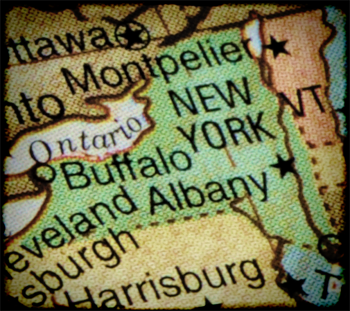The now-concluded manhunt for two convicted killers in upper New York state has had me thinking about immigration enforcement and cooperation. This is because the first killer to be located, Richard Matt, was tracked down and confronted by Department of Homeland Security (DHS) Border Patrol agents (BPAs), who were obliged to shoot him when he refused to lay down his weapon in the encounter.

Now lest we naively think it was just happenstance that BPAs on routine patrol near the northern border came across Matt, keep in mind that the encounter was by the Border Patrol's Tactical Unit (BORTAC), which doesn't do routine patrolling. That's not why they exist. One can only conclude that they were asked to assist by New York state enforcement officials — a request that paid off, given the tracking skills that are a part of the routine training given all BPAs.
But does the state reciprocate when it comes to assisting DHS in its immigration enforcement duties? Not really. There are innumerable rules and policies constricting that kind of cooperation across the spectrum of New York agencies, including the State Police and Department of Corrections and Community Supervision. In fact, the prior governor, David Paterson, went so far as to pardon aliens so they could avoid deportation and toward the end of his incumbency actually created a special pardon board for that purpose. The current governor also has pardoned convicted alien criminals for the same reason.
But New York is not alone; Governor Brown has done the same thing in California, as if it were not already awash in a sea of serious offenses committed by aliens, including the murder of two California deputies, Michael Davis Jr., and Danny Oliver, by a previously deported illegal alien.
Interestingly, as immigration law is presently interpreted, not all gubernatorial pardons are the basis for evading deportation. That anomaly would change under both the House and Senate versions of bills introduced in their respective chambers, ironically (given the circumstances of the deputies' murders) named the Michael Davis, Jr., and Danny Oliver Acts. Both are excellent bills, but I take exception to this gubernatorial pardon provision, which, it seems to me, would be better crafted if it specifically said that no pardon shall have the effect of nullifying the grounds of removal if it is granted principally for the purpose of defeating the immigration laws.
Also ironic is the insistence of open borders advocates that present interpretations of immigration law limiting the applicability of gubernatorial pardons are unconstitutional because they impinge on the sovereign powers of the states. (See here and here.)
Funny, isn't it, how open borders advocates are all about states' rights as long as it involves sanctuary laws, granting driver's licenses to illegal aliens, and pardons or the like, but set up a hue and cry when the states exercise those same rights to try to curb the adverse consequences of illegal immigration that affect their communities in every way, from public safety to health to education to social services?
Of course, much of the blame for this one-way state of affairs has to be laid directly at the doorstep of the federal government under the leadership of this president, who has also pardoned aliens to relieve them from the fear of deportation.
This administration has again and again showed its contempt for any attempt to enforce the immigration laws in a meaningful way and, while fighting Arizona in the courts to prevent it from taking steps to enforce immigration laws, has permitted and encouraged state and local governments to ignore detainers filed against alien criminals, and indeed released tens of thousands of them from its own custody.
Also under the auspices of this administration, the President's Task Force on Twenty-first Century Policing has recommended "Decoupl[ing] federal immigration enforcement from routine local policing".
Fortunately for the citizens of New York State, the Border Patrol took a more mature view and, notwithstanding the limited cooperation they and their counterparts in Immigration and Customs Enforcement receive from state officers, participated in the manhunt for the two escaped killers — both born and bred native U.S. citizens, not aliens — and not only eliminated the danger posed by one (who by some accounts was a multiple killer), but by using their tracking skills to locate him, helped to focus the apparently clueless New York law enforcement organizations on where to find the other one as well.
Too bad such cooperation today is mostly a one-way street.
